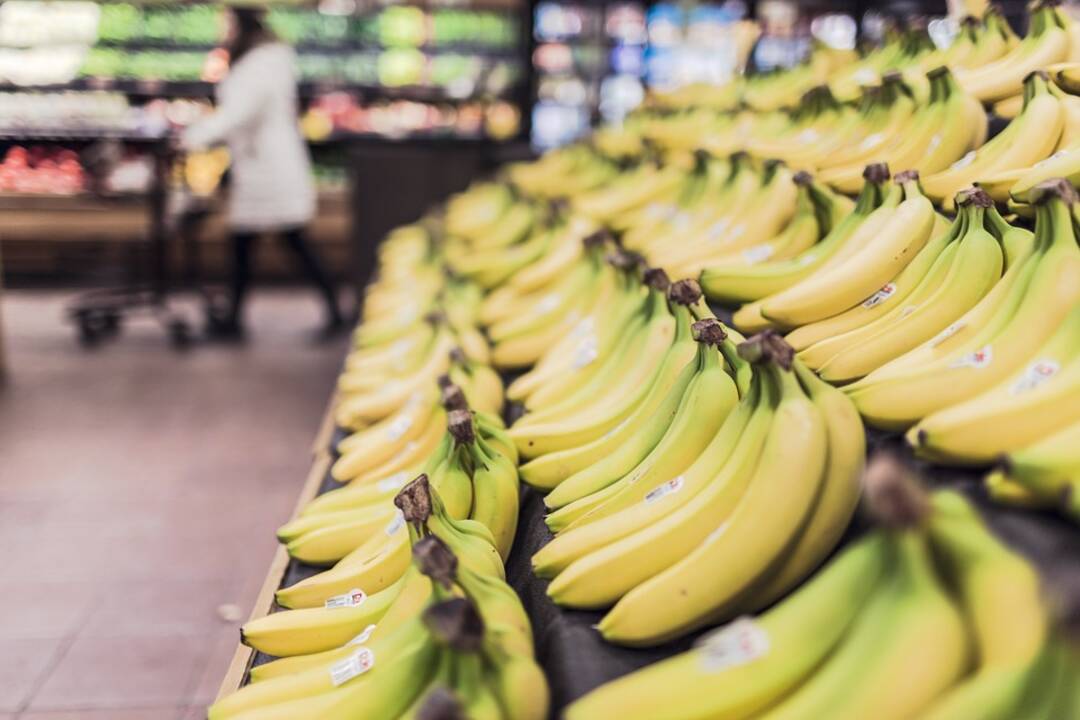-
Pakistani scientists begin extracting fiber from banana waste

The Arab News reported, scientists in Pakistan’s southeast Sindh province have begun extracting fiber from banana waste in what textile industry stakeholders and farmers hope could become an alternative to cotton.
It said that banana fiber is one of the strongest natural fibers. Biodegradable and similar to bamboo fiber, it is made from the stem of the banana tree, which is composed mainly of cellulose.
Sindh province is Pakistan’s main producer of bananas, contributing 80 percent of its yield — and tens of thousands of tons of waste as banana plants only give fruit once in their lifespan and the rest of the tree is discarded after harvest.
Research on converting banana waste into biodegradable materials has been taking place in recent years in countries such as Australia and Japan, but in Pakistan the Sindh agriculture university spearheads project to transform harvest remains into biodegradable materials.

Prof. Dr. Inayatullah Rajpar, who heads the department of soil science at the university, told Arab News earlier this week: “At SAUT we have recently started a pilot project to make valuable products out of banana waste. From banana waste we are producing products, including banana fiber, and solid and liquid compost.”
The recycling of waste will also help reduce pollution from banana farms.
He said: “Sindh produces 35,000 tons of banana wastage every year which is either burnt or thrown away, contributing to environmental degradation.”
Pakistan media regulator directs TV channels to stop airing intimacy in dramas
Pakistani envoy: Revival of ancient Silk Road will strengthen regional connectivity
Saudi Arabia relaxes travel restrictions for travelers from India, Egypt, Pakistan
“This initiative will help farmers renounce the environment unfriendly practices and make money out of fruit waste.”
When farmers lop the bananas from trees, they generally leave the bulky, bulbous trunks to decompose and waste away. But under cotton, the country’s textile industry and farmers see potential in their production, and a chance to help the country reduce its import bill.
Most of Pakistan’s cotton has been imported in recent years as production decreased.
In 2019-20, the country’s cotton harvest was the lowest in more than three decades, and the 2020-21 yield was down by almost 30 percent. Hyderabadbased agriculturist Ghulam Sarwar Panhwar told Arab News: “Pakistan’s national annual cotton yield has fallen to half in the last decade or so due to climate change and other factors."

As banana is a higher return crop than cotton, using its waste for fiber production would make cultivation even more profitable for all stakeholders.
Panhwar said: “For instance, one acre can produce 150,000 rupees’ ($840) worth of cotton. In contrast, one acre can produce 200,000 to 300,000 rupees’ worth of bananas. Benefit from banana fiber would be additional for growers.”
Mustafa Bari, director of Bari Textile Mills Pvt, said that while more research was required to estimate the potential of banana fiber in replacing cotton yarn, the project was promising as it would help the local textile industry meet international demand for sustainable, value-added produce on markets such as the EU.
Source: arabnews
You May Also Like
Popular Posts
Caricature
BENEFIT Sponsors BuildHer...
- April 23, 2025
BENEFIT, the Kingdom’s innovator and leading company in Fintech and electronic financial transactions service, has sponsored the BuildHer CityHack 2025 Hackathon, a two-day event spearheaded by the College of Engineering and Technology at the Royal University for Women (RUW).
Aimed at secondary school students, the event brought together a distinguished group of academic professionals and technology experts to mentor and inspire young participants.
More than 100 high school students from across the Kingdom of Bahrain took part in the hackathon, which featured an intensive programme of training workshops and hands-on sessions. These activities were tailored to enhance participants’ critical thinking, collaborative problem-solving, and team-building capabilities, while also encouraging the development of practical and sustainable solutions to contemporary challenges using modern technological tools.
BENEFIT’s Chief Executive Mr. Abdulwahed AlJanahi, commented: “Our support for this educational hackathon reflects our long-term strategic vision to nurture the talents of emerging national youth and empower the next generation of accomplished female leaders in technology. By fostering creativity and innovation, we aim to contribute meaningfully to Bahrain’s comprehensive development goals and align with the aspirations outlined in the Kingdom’s Vision 2030—an ambition in which BENEFIT plays a central role.”
Professor Riyadh Yousif Hamzah, President of the Royal University for Women, commented: “This initiative reflects our commitment to advancing women in STEM fields. We're cultivating a generation of creative, solution-driven female leaders who will drive national development. Our partnership with BENEFIT exemplifies the powerful synergy between academia and private sector in supporting educational innovation.”
Hanan Abdulla Hasan, Senior Manager, PR & Communication at BENEFIT, said: “We are honoured to collaborate with RUW in supporting this remarkable technology-focused event. It highlights our commitment to social responsibility, and our ongoing efforts to enhance the digital and innovation capabilities of young Bahraini women and foster their ability to harness technological tools in the service of a smarter, more sustainable future.”
For his part, Dr. Humam ElAgha, Acting Dean of the College of Engineering and Technology at the University, said: “BuildHer CityHack 2025 embodies our hands-on approach to education. By tackling real-world problems through creative thinking and sustainable solutions, we're preparing women to thrive in the knowledge economy – a cornerstone of the University's vision.”
opinion
Report
ads
Newsletter
Subscribe to our mailing list to get the new updates!






















